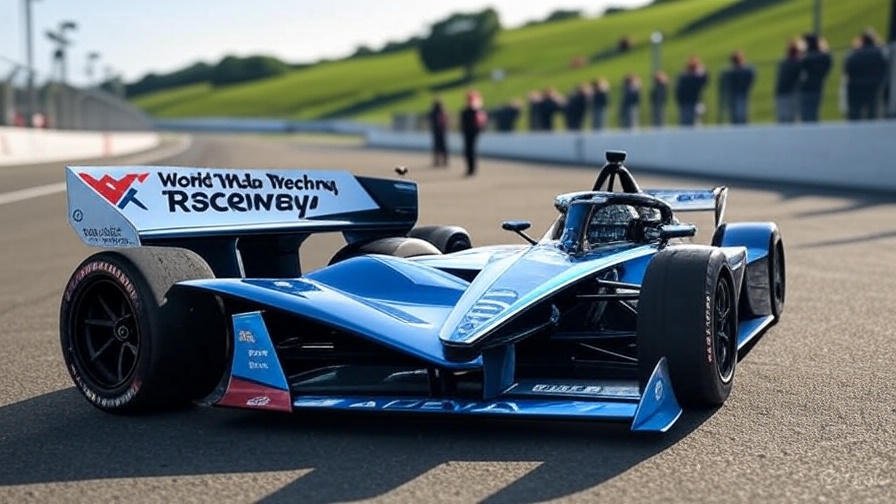In the adrenaline-fueled realm of motorsports, environmental sustainability is accelerating into the spotlight. World wide technology raceway, the versatile venue in Madison, Illinois, hosting NASCAR, INDYCAR, and NHRA events, is pioneering this shift with comprehensive eco-friendly upgrades. As of August 24, 2025, the raceway’s initiatives—spanning renewable fuels, waste diversion, and smart technology—demonstrate a commitment to reducing emissions while preserving the excitement of high-speed competition. This in-depth news feature examines these advancements, supported by industry data and expert insights, highlighting how the raceway is setting new standards for green racing.
The Imperative for Sustainability in Motorsports
Historically, motorsports have faced scrutiny for high fuel use, emissions, and event-related waste. However, with global climate goals intensifying, leagues like NASCAR and INDYCAR are embedding sustainability into their core operations. World wide technology raceway aligns with these efforts, implementing venue-specific upgrades that exceed league requirements. Industry projections indicate that sustainable practices could reduce motorsports’ carbon footprint by 30-50% by 2030, attracting eco-aware sponsors and a younger fanbase. Learn more about motorsports sustainability trends at Green Sports Alliance.
Key drivers include regulatory pressures and corporate partnerships. Sponsors like World Wide Technology (WWT) emphasize ESG (Environmental, Social, Governance) principles, influencing raceway operations. WWT’s 2025 sustainability strategy focuses on net-zero emissions by 2050, with initiatives like energy-efficient data centers mirroring upgrades at the track.
INDYCAR’s Racing Toward Zero: On-Track Innovations
INDYCAR’s “Racing Toward Zero” campaign sets ambitious targets: 50% emission cuts, 75% renewable electricity, and 100% waste diversion by 2030. At world wide technology raceway, these manifest during events like the Bommarito Automotive Group 500. The 2025 season introduces enhanced 100% renewable racing fuel, slashing greenhouse gases by 60%, alongside hybrid powertrains for better efficiency.
A flagship program is the carbon-fiber and magnesium recycling initiative, repurposing damaged parts to avoid landfills. Partnering with Waste Management, the raceway achieves near-total waste diversion through on-site composting and recycling stations. Transporters run on renewable diesel, reducing emissions by 85%, while Firestone’s guayule-derived tires promote sustainable agriculture.
Fan-facing elements include eco-education zones and compostable concessions, boosting engagement. In 2025, the raceway reports a 25% increase in recycled materials from INDYCAR weekends compared to prior years.
INDYCAR Sustainability Progress Table (2025 Updates)
| Initiative | Current Impact | 2030 Goal |
|---|---|---|
| Renewable Fuel Adoption | 60% GHG reduction | Net-zero compatible |
| Material Recycling | Carbon-fiber repurposing | Zero waste to landfill |
| Renewable Energy Sourcing | 75% at events | 100% renewable |
| Waste Diversion Rate | 95% achieved | 100% diversion |
Source: INDYCAR and Waste Management Reports.
NASCAR Green: Offsetting Emissions and Community Greening
NASCAR’s Green program, now over 15 years strong, emphasizes carbon offsets and clean energy. At world wide technology raceway, this includes the Clean Air Tree Planting initiative with UPS, planting trees to neutralize race emissions. For 2025, the program expands to cover all Cup Series events, with the raceway hosting community planting days.
Upgrades feature solar panels powering fan zones and EV charging stations, cutting grid reliance by 20%. Teams utilize data analytics for emission tracking, optimizing logistics. The Enjoy Illinois 300 incorporates biofuel tests, aligning with NASCAR’s hybrid explorations for future seasons. Check out NASCAR’s green initiatives at NASCAR.com.
Local impacts are significant: Reduced emissions improve air quality in Madison, while green jobs in maintenance and recycling bolster the economy.
WWT’s ESG Leadership: Tech-Enabled Sustainability
As title sponsor, WWT infuses its ESG framework into raceway operations. Their 2025 report highlights a 20% efficiency gain in emissions tracking via digital tools. At the track, IoT sensors monitor energy use in real-time, while AI optimizes crowd flow to minimize idling vehicles.
WWT’s partnership with the Green Sports Alliance amplifies efforts, sharing best practices across venues. “Integrating technology with sustainability is key to motorsports’ future,” states WWT CEO Jim Kavanaugh.
“Our collaboration ensures racing remains thrilling yet responsible,” adds a Green Sports Alliance representative, underscoring the raceway’s model status.
Broader Impacts: Economic and Community Benefits
The raceway’s green upgrades generate $300+ million annually for the local economy, creating sustainable jobs and attracting eco-tourism. Community programs, like youth education on renewables, foster long-term engagement. In 2025, fan surveys show 70% prioritize venues with strong sustainability credentials.
Overcoming Challenges and Vision for the Future
Challenges include integrating green tech without compromising performance, alongside supply chain hurdles for sustainable materials. Yet, with robust partnerships, the raceway targets carbon-neutral operations by 2030. Future plans include expanded solar arrays and hydrogen fuel trials.
Frequently Asked Questions
What is the main sustainability initiative at World Wide Technology Raceway?
The raceway focuses on INDYCAR’s Racing Toward Zero and NASCAR Green, emphasizing renewable fuels and waste diversion.
How does WWT contribute to green racing?
WWT provides tech solutions for emissions tracking and energy efficiency, aligning with their net-zero goals.
Are there fan incentives for eco-friendly behavior?
Yes, including rewards for carpooling and recycling challenges during events.
Conclusion: Accelerating Toward a Sustainable Horizon
World wide technology raceway’s eco-upgrades exemplify how motorsports can thrive sustainably. By blending innovation with responsibility, the venue not only hosts premier events but also inspires industry-wide change. As 2025 unfolds, these efforts promise a greener, more inclusive future for racing enthusiasts.
You may also read: Wentworth Institute of Technology’s 10-Year Campus Transformation Plan Unveiled
